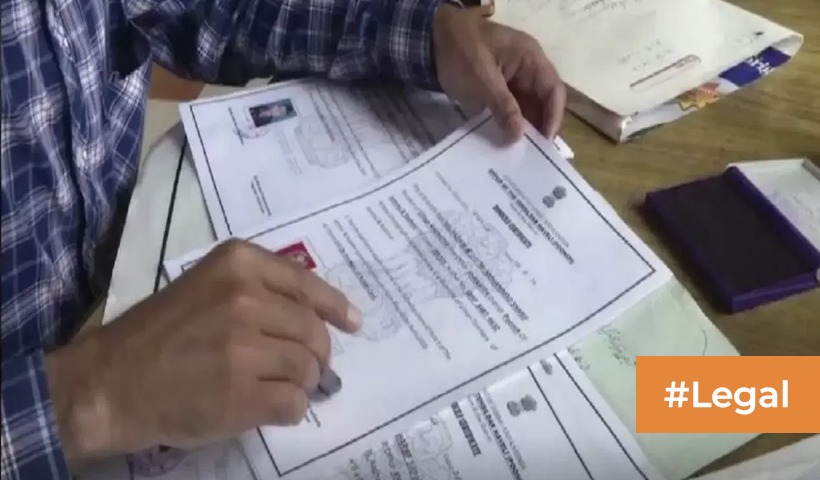How to Transfer the Title of Inherited Property in India
Inheriting a property in India can be a complex process, especially when it comes to transferring the title of the inherited property. Navigating the legal and procedural aspects involved in transferring property ownership requires a clear understanding of the steps involved. In this article, we will delve into the intricacies of transferring the title of inherited property in India, outlining the essential information that beneficiaries need to know.
- Understand the Legal Heir Status
Before initiating the process of transferring the title of inherited property, it’s crucial to establish legal heirship. The legal heirs are individuals entitled to inherit the deceased person’s property. In India, the legal heirs are determined based on the deceased person’s personal laws – which could be Hindu, Muslim, Christian, or other applicable laws. Commonly, legal heirs include spouses, children, and parents.
- Obtain a Death Certificate
The first step in the process is to obtain the death certificate of the deceased individual. The death certificate serves as legal documentation of the person’s demise and is a prerequisite for any property transfer. This certificate is usually issued by the local municipal authority and is required for various legal purposes, including property inheritance.
- Succession Certificate or Letter of Administration
To establish legal ownership and entitlement to the inherited property, legal heirs may need to obtain a succession certificate or a letter of administration. The process for obtaining these documents may vary based on the personal laws applicable to the deceased person.
- Succession Certificate: In cases where the deceased person has left a valid will, legal heirs may apply for a succession certificate through the civil court. The succession certificate is granted to the person legally entitled to the deceased’s property, providing them with the authority to transfer or inherit the assets.
- Letter of Administration: When the deceased person does not leave a valid will, legal heirs can apply for a letter of administration. This document is issued by the court, authorizing the administrator to manage and distribute the deceased person’s estate. The process involves filing a petition with the appropriate court, which will then appoint an administrator.
- Probate for Properties with a Will
If the deceased person has left a valid will, the will needs to be probated to facilitate the legal transfer of the property to the beneficiaries. Probate is a legal process wherein the court verifies the authenticity of the will and validates its execution. The court issues a probate certificate, which confirms the legal authority of the executor named in the will to administer the deceased person’s estate.
- Mutation of Property Records
Once the legal heir status is established, and the necessary certificates are obtained, the next step is to apply for the mutation of property records. Mutation involves updating the land revenue records to reflect the change in ownership due to inheritance. This process is typically handled by the local municipal or revenue authorities. Submit the required documents, including the death certificate, succession certificate, or probate certificate, along with an application for mutation.
- Pay Applicable Taxes and Fees
Property transactions in India often attract taxes and fees. During the title transfer process, legal heirs must be aware of and fulfill their tax obligations. This may include payment of stamp duty, registration fees, and any other applicable taxes. The amounts can vary based on the location and the property’s value, so it’s advisable to consult with a legal professional to ensure compliance.
- Transfer of Property Deed
Once the mutation process is complete, the final step is the actual transfer of the property deed. This involves updating the records in the local land revenue office to reflect the new ownership. Legal heirs may need to submit the mutation order, along with the other relevant documents, to the concerned authorities for the transfer of the property deed.
- Update Other Documents and Records
Apart from the official land and revenue records, legal heirs should also update other documents and records to reflect the change in ownership. This includes updating the property tax records, utility bills, and any other relevant documents. Ensuring that all records are consistent with the updated ownership details is essential for a smooth transition.
- Seek Legal Assistance
Given the legal complexities and variations in inheritance laws across different religions in India, seeking legal assistance is highly recommended. Consulting with a qualified lawyer specializing in property and inheritance laws can provide valuable insights and ensure that the process is conducted in compliance with the applicable legal provisions.
- Avoiding Disputes Among Legal Heirs
In cases where multiple legal heirs are involved, disagreements and disputes can arise. To prevent conflicts, it’s advisable to engage in open communication and, if necessary, seek mediation or legal intervention. Clearly defining the terms of inheritance and obtaining a legal document that outlines the distribution of the property can help mitigate potential disputes among legal heirs.
Transferring the title of inherited property in India involves a series of legal and procedural steps. From establishing legal heirship to obtaining the necessary certificates and updating records, each stage requires careful attention to detail. Legal heirs must navigate through the intricacies of the process, ensuring compliance with applicable laws and regulations. Seeking professional legal advice and assistance can simplify the process and provide legal heirs with the guidance they need to successfully transfer the title of inherited property in India.




